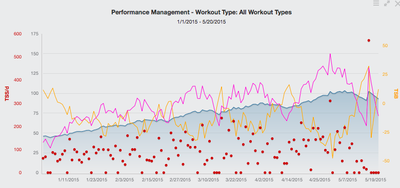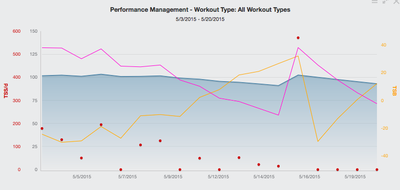Finding the Right Fit
When seeking out a coach, it should resemble a job interview. Each coach has a different twist on how they interact, coach, plan, break down movements, etc. Due to all of these perspectives, each coach is going to have a different philosophy and create a unique culture of training that is a reflection of them as a coach. Just as in your job interview, you need to ensure that the fit is right so both parties can be happy and operate to their potential. Coaches may differ in:
Philosophy of training (long and slow, short and fast, etc)
Generic vs Custom (is your plan prepared by the month, or catered to your schedule?)
Utilization of Data (do you go off of pace, or are you using Power and Heart Rate)
Periodization vs General Fitness (are you building and peaking, or do you want to keep base fitness?)
Goal Setting
Sports Psychology
Authoritative/Submissive/Cooperative (does your coach tell you, work with you, or give in to your demands?)
ETC ETC ETC.
You will begin to realize that while coaches are offering you the same end result, how you get there could be different and that process may affect your motivation along the way.
What a Coach can Help With.
When getting a coach there is an obvious thing that you’re taking away right off the bat. This is going to be your training plan. Now how that plan looks may differ, but every coach I know gives training plans. This training plan will lay out all the workouts needed to achieve your goals in an effective manner.
After the training plan though, your coaches worth really starts to show through. I can only speak for myself here but these are some of the areas that athletes have noted growth in. Using your coach as a resource in terms of equipment optimization to ensure that you didn’t just buy a $5,000 bike and actually get slower. Also, when working with a coach you should have a solid goal setting process in place where your coach is able to break down the outcome oriented objective into small attainable pieces to help you throughout the process. To ensure goals are being met, your coach should be breaking down and analyzing your workouts through the data you are uploading. By tracking the data, your coach is ensuring your build and specific training for specific goals you’ve laid out.
While there are many areas a coach can help with, all of the areas above are catered around your physical performance. Another great tool though that a coach can bring is the ability to help with your sports psychology. Are you visualizing your event and working on relaxation or motivational cues? Do you know where your optimal level of performance is (stress levels?) Are you consciously aware of these things in training and past race performances? Are you continually building your mental toughness and “flow” state for future performances? Again, when being coached, this is a great tool that you can draw on and discuss with a coach.
Cost of a Coach
This is something that many athletes struggle with. However, one of my athletes, Peter Post, said it best. Athletes will spend $8,000 on the newest training equipment and gain 30 seconds over a 40km TT. However, they will bat an eye at using a coaching service that could save them 3-5 minutes over a 40km TT and cost them $2k-3k/year. To put this into context, let me break down an effective Time Trial bike with money left for coaching.
Option A:
$8,000 bike because its cool and you train with friends and by yourself doing what you’ve always done
Result A: FTP (power figure) stays the same (250 for this example) and rider goes from 1 hour 40km TT to 59:20 TT
Option B:
Cervelo P2 used ($1800)
Aero Helmet ($250)
Deep Front wheel and training wheel with disc cover ($1500)
Race tires ($120)
Race tubes ($20)
Front end brake to clean up front end ($300)
Power Meter ($1000)
Race skinsuit ($250)
Coaching for 1 year ($2400 < Dalzell Coaching LLC cost)
Result B: FTP jumps from 250 to 310 over the year. Rider goes from 1 hour 40km TT to 55 min 40km TT and wins Cat ¾ state time trial championship
+ Saves money
Option C:
Keep your same bike
Upgrade Race tires + Tubes ($140)
Power Meter ($1000)
Pay Coaching for 1 year ($2400)
Result C: Increase FTP by 60 watts and crush all your friends at your training rides, be competitive in races.
+ save $4,440
Conclusion
A coach is going to take you to that next level and push you beyond your current levels of fitness. While the training plan is great for accountability and not having to spend hours creating it yourself, a coach is much more than that. You are going to gain insight into the sport that makes you much more effective with your time and helps you achieve your goals that were only ever dreams before. While the new $8000 bike is fantastic to look at, you are still going to have to pedal it. Forget the high end bike for now, invest in your own engine instead.


 RSS Feed
RSS Feed
